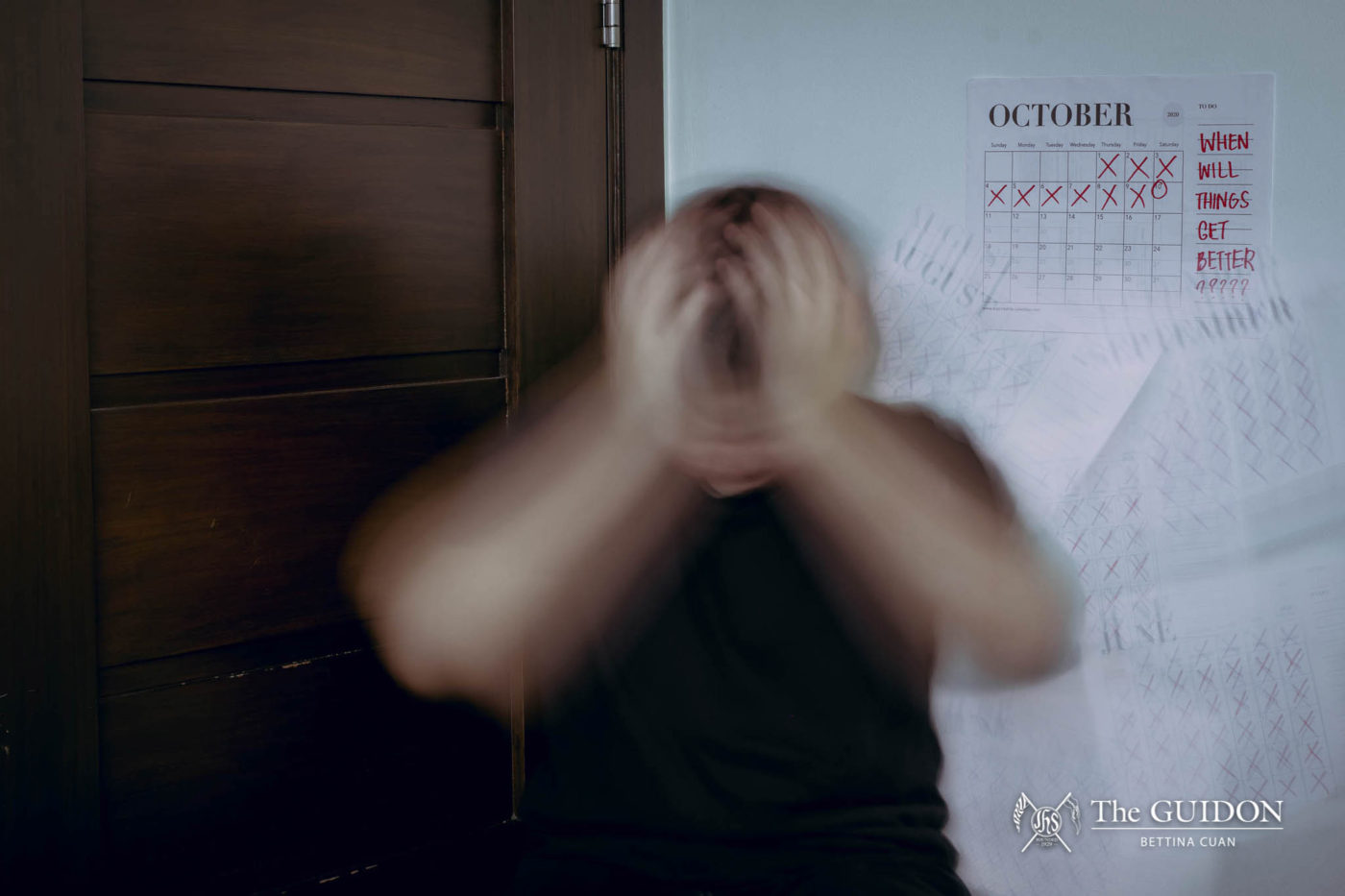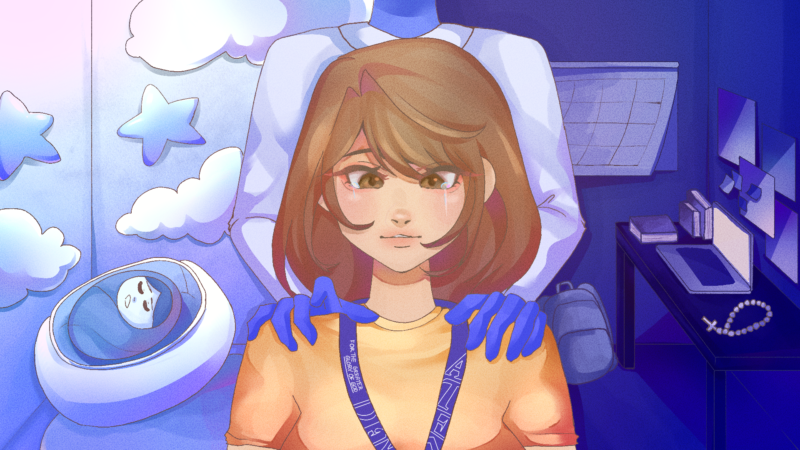AS THE country’s COVID-19 crisis plunges deeper into dire status, it is no mystery that the general public frets more and more about their safety. Threats imposed by the outbreak draw people nearer to their stress tolerance as not only physical health but also mental and emotional wellness are left at risk.
While the ongoing quarantine warrants protection from the pandemic’s perils, it does not shield people suffering from mental illnesses against the triggers that plague their sanity.
Internal battle
Pushing through the agony induced by clinical depression has been difficult for Ken*. The severity of his condition drastically escalated when the pandemic befell the country, especially when he and three other family members tested positive for COVID-19. Despite their full recovery, his symptoms of depression continue to trouble him. “Yung mental health status ko nung ECQ, it progressively became worse (My mental health status progressively became worse during the ECQ),” he recounts.
For example, his general loss of interest substantially decreased his productivity. “Bumalik yung sintomas nung kasagsagan ng busy season [sa trabaho] (The symptoms resurfaced during the peak of busy season at work),” he explains.
To keep his symptoms at bay, Ken veers away from his stressors such as exposure to bad news on television, and gravitates towards comedy series and movies as a distraction.
Mina* shares similar experiences with Ken as she struggles with the same mental illness. In her case, the ongoing crisis has given rise to new sets of fears. “We worry about our family that’s not here. We worry about our family that’s currently on lockdown. Frustrations pile up,” she says.
Amid her despondent condition, Mina relieves stress by finding refuge in hobbies and activities she enjoys. “Feel ko kasi when you’re inside, you have nothing else to focus on but your problems. That’s why I try to distract myself through art, with memes.”
Although coping strategies provide temporary relief, these do not render long-term remedy. Mood disorders like clinical depression necessitate professional help to allay the symptoms detrimental to overall well-being.
Trailing through the darkness
There is no quick fix when treating mental illnesses, as patients have to go through months or even years of therapy and medication. However, consultations have transitioned online to accommodate concerns during quarantine.
Ken shares that he is still able to consult his psychiatrist via the electronic prescription application Philippine Pharmaceutical Directory (PPD) for Patients. This innovation, albeit nifty, has its downsides as online consultations cost more than onsite ones. “Normally yung binabayad ko sa psychiatrist ko [ay] Php 1,000 per session, pero yung sa online twice na (I normally pay Php 1,000 to my psychiatrist per session, but online sessions are twice the fee),” Ken attests.
Meanwhile, some cases call for more lenient measures. Robyn*, who was diagnosed with an anxiety disorder explains that her required biweekly therapist appointments were eventually reduced to monthly visits until she no longer needed them.
She employs her therapist’s recommendations, like meditation and mindfulness, whenever she experiences breakdowns or anxiety attacks. Regularly performing these supplementary exercises makes it easier for her to cope, even with less visits to her therapist. “Once you start doing it and applying it in your everyday life it becomes less of a burden; it becomes more natural,” Robyn explains.
Treatments for varying degrees of mental illnesses are non-linear; what works for some may not work for others. Although professional help is within reach to some, there are still societal misconceptions on mental health that keep them from being understood.
A chink of hope
Diminishing symptoms of mental illnesses is far from being a lost cause as patients manage to find even the faintest hint of hope to keep them going. Nonetheless, there are persistent gaps that impede their recovery process.
For instance, the stigma against mental health continues to surface and invalidate the suffering of these patients. Ken divulges that sharing his sentiments with his family can be rather uncomfortable. “Sa pamilya ko—gusto kasi [nilang paniwalaan] na nasa isip lang daw yun (My family wants to believe that it’s all in my head),” he recounts.
Psychology Department professor JR Ilagan explains that a reliable support system is crucial for people who are suffering from mental illnesses. “We’re living in a stressful context. So, especially for people who are suffering from [a] certain mental illness, really what’s necessary is some kind of support from family,” he says.
Downplaying the severity of mental illnesses as a lack of resilience and emotional strength only adds layers to the struggles of those suffering from them. When feelings of fear and anxiety have already been exacerbated by the prolonged crisis and people are rendered vulnerable, there is greater need for effective modes of support from the community.
*Editor’s Note: The interviewees’ names have been withheld at their request in order to protect their identity and privacy.







